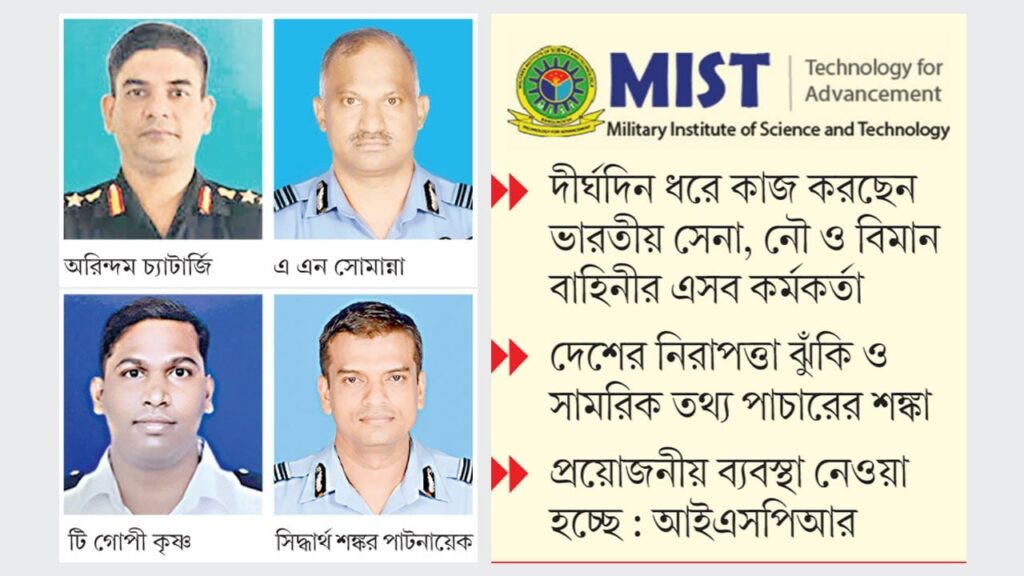According to a recent investigative report published by Daily Amar Desh, Indian military officers have been appointed to teaching roles at Bangladesh’s elite defense educational institution, the Military Institute of Science and Technology (MIST), raising fresh questions about national security and foreign influence in the country’s military education system.
The report reveals that four Indian officers from the Indian Army, Navy, and Air Force are currently serving as faculty members in two key departments at MIST. Among them is Colonel Arindam Chatterjee, listed as a senior instructor in the Computer Science and Engineering department. He represents the Indian Army and holds a significant instructional role at the institute.
Also in the same department is Lieutenant Commander T. Gopi Krishna, an officer of the Indian Navy, serving as an Instructor (Class-B) since August 2022. Prior to this, he was engaged in teaching duties at India’s National Defence Academy in Pune, a premier military training institution.
From the Indian Air Force, two officers—Group Captain Siddhartha Shankar Patnaik and Group Captain A. N. Somanna—have been appointed as senior instructors in the Aeronautical Engineering department. Their designations are listed on MIST’s official website as “Foreign Faculty,” indicating their origin and special status within the institution.
This development has raised concern among defense analysts and former military officials in Bangladesh. Retired Lieutenant Colonel Didarul Alam, speaking to Amar Desh, questioned the strategic implications of employing foreign military officers—especially from a neighboring country with complex geopolitical ties—within Bangladesh’s top military training infrastructure. He expressed deep concern about potential security breaches and intelligence-gathering possibilities.

Alam further alleged that some of these individuals might be working under the umbrella of India’s intelligence agency RAW. “We have heard with dismay that RAW-affiliated individuals have found their way into different sectors. If this is true for our military academic institutions, it is extremely worrying,” he said. He urged authorities to thoroughly investigate whether these appointments were made under proper bilateral defense agreements or if they reflect a deeper strategic alignment that lacks transparency.
Critics argue that since the post-2014 period—especially after August 5, a symbolic date marking significant political and regional shifts—Bangladesh’s defense sector has experienced growing foreign oversight and influence, often without public disclosure. In light of such claims, many are demanding a clear government explanation regarding the framework and intent behind the appointment of foreign military personnel in domestic military institutions.
Despite growing concerns, official statements from the Ministry of Defense or the Armed Forces Division have not been issued regarding the terms of these foreign appointments. The lack of transparency continues to fuel suspicions among policy analysts, civil society members, and a segment of retired defense officials who worry about national sovereignty and operational confidentiality.
As Bangladesh continues to modernize its military and deepen bilateral ties with regional powers, transparency in defense cooperation—especially involving military education and training—remains a critical issue. The government is being urged to publish clear guidelines and maintain public accountability about who is involved in shaping the minds of future military engineers and officers of the nation.

